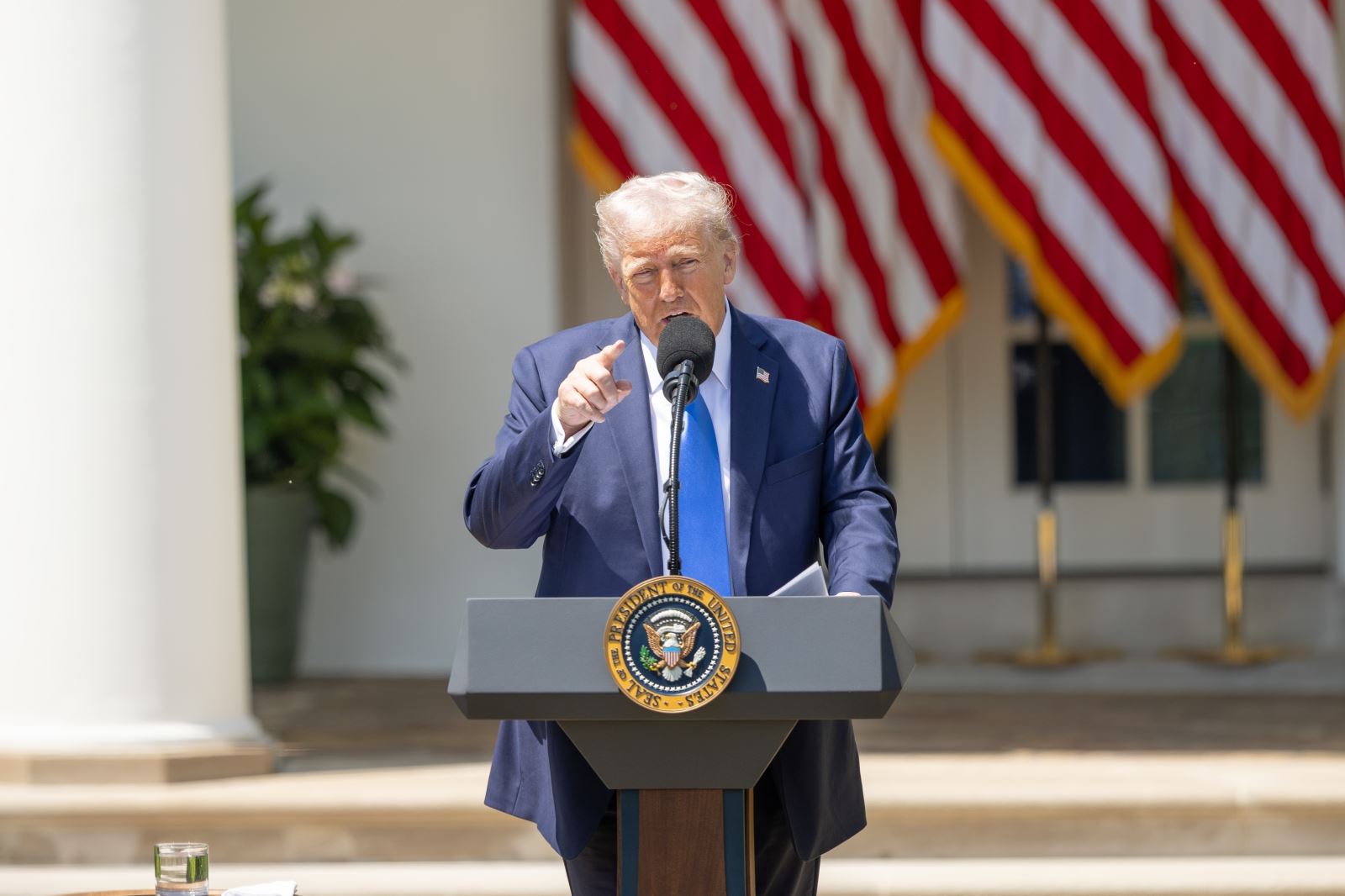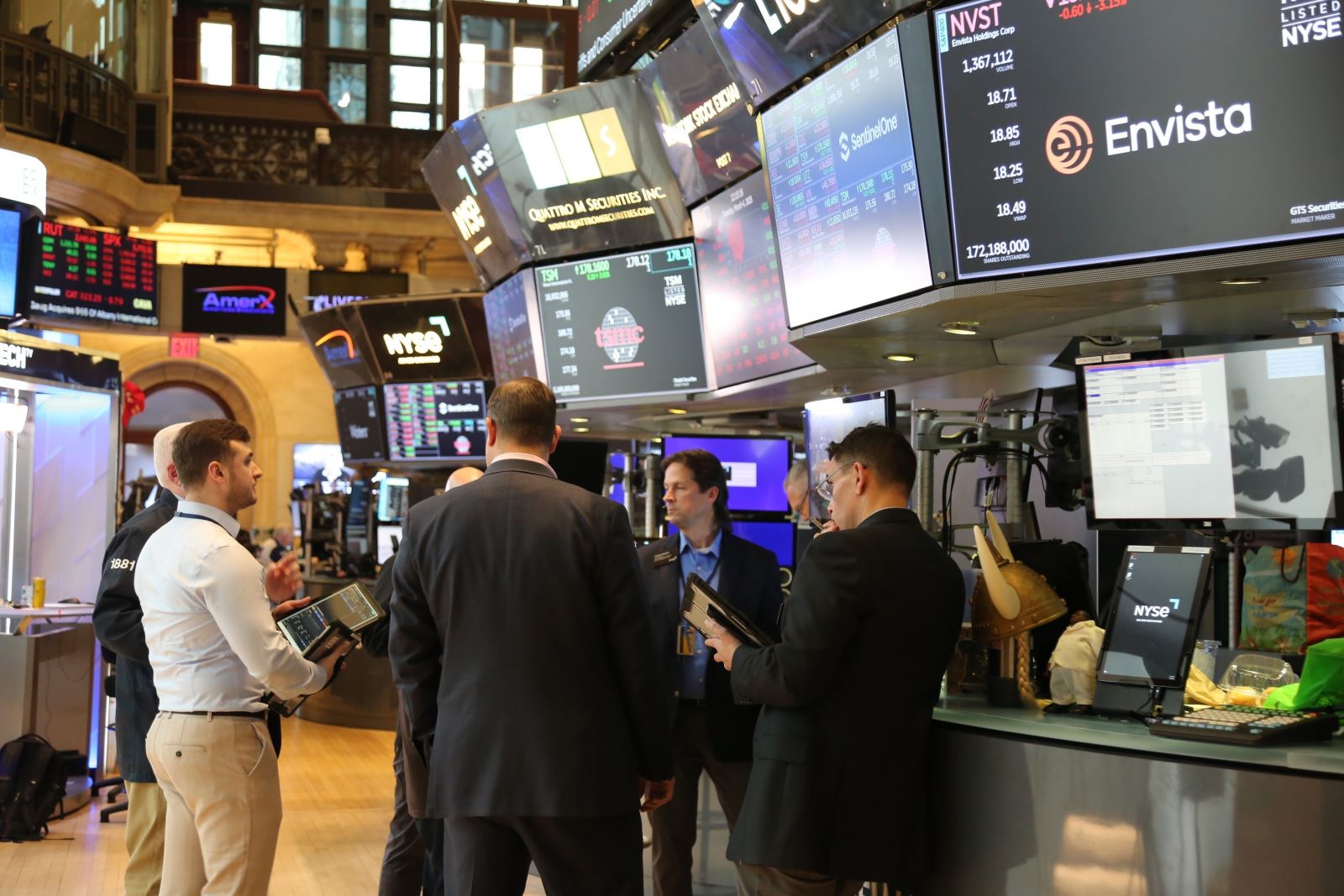
According to comments from Turkey's Anadolu news agency, US President Donald Trump's tough trade policy in just the first 100 days since taking office has created strong undercurrents throughout the global economy , causing an unprecedented reshaping of financial markets.
Comprehensive tariffs - the White House's economic weapon
Since taking office on January 20, the Trump administration has made a series of policy announcements that have shaken international markets. The main lever in this strategy was the imposition of comprehensive tariffs in early April targeting more than 180 countries – what President Trump called “reciprocal tariffs.”
Specifically, the tariffs range from a base rate of 10% to a maximum of 245% on some Chinese exports. The stated goal is to encourage companies to move production back to the US, reduce the trade deficit and create jobs for the American people.
While President Trump touted the measures as a way to bring “trillions of dollars” back to the US, the response from major economies was immediate. In particular, China quickly responded by imposing 125% tariffs on US goods, raising fears of an all-out economic war between the world’s two largest economies. Equally important, the European Union (EU) also took retaliatory measures, contributing to a wave of global economic instability.
Stock Market: Record Volatility
The US stock market has been volatile in the first 100 days of Trump's presidency. Major indexes have seen significant declines:
The Dow Jones Industrial Average fell 8.4% to settle around 40,500 in late April, after hitting a low of nearly 37,600. The S&P 500 fell 8.2% to close at 5,550, having briefly dipped below the psychologically important 5,000 mark. The tech-heavy Nasdaq was hit hardest, falling 11.8% to 17,410, down from a low of around 15,250.
"This level of volatility reflects deep investor uncertainty about the future of the global economy under the pressure of tough trade policies," market experts said.

Currencies and Commodities: The Search for Safe Havens
Currency markets also reacted strongly to Trump's policies. The US dollar index fell 8.3% to 99, while the euro surged 9.6% to settle at $1.14, compared with $1.04 earlier.
As stock and currency markets have become volatile, investors have turned to traditional safe-haven assets, especially gold. The price of gold has surged 22.5% in Trump’s first 100 days, from around $2,700 an ounce to a record high of more than $3,300 in late April, and even peaked at $3,350 in mid-month.
In contrast, the oil market has been under pressure. Brent crude has fallen about 20%, from nearly $79 a barrel at the end of January to about $63 at the end of April. Analysts say this reflects concerns that tariffs will reduce global trade and thus oil demand.
Bitcoin, which was expected to grow thanks to Mr. Trump's support for cryptocurrencies, has also fallen 8.5% during this period.
Big tech companies suffer heavy losses
Among the stocks affected, big tech companies were hit the hardest: Tesla, which has benefited from CEO Elon Musk’s relationship with President Trump, fell 32%. Semiconductor giant Nvidia fell 22.8%. Alphabet (Google’s parent company) fell 19.7%. Amazon fell 19.1%. Meta fell 10.4%. Microsoft fell 8.2%. Apple, usually the most resilient, also fell 5.4%.
"This decline shows deep concerns among investors about the impact of tariffs on global supply chains and production costs for technology companies," a stock market expert commented.
After the first 100 days of the Trump administration, the global economic landscape is witnessing a dramatic adjustment. Analysts predict that if tariffs are maintained or expanded, we could see a profound restructuring of global supply chains, changing international trade flows and having a lasting impact on export-dependent economies.
In this volatile context, the big question is whether Mr. Trump's "reciprocal tariffs" will actually benefit the US economy as promised, or will it spark a deeper economic crisis globally.
Source: https://doanhnghiepvn.vn/quoc-te/chinh-sach-thuong-mai-va-thue-quan-cua-my-dinh-hinh-lai-thi-truong-toan-cau/20250503073628860


![[Photo] Award ceremony for works on studying and following President Ho Chi Minh](https://vphoto.vietnam.vn/thumb/1200x675/vietnam/resource/IMAGE/2025/5/20/a08ce9374fa544c292cca22d4424e6c0)

![[Photo] Vietnamese shipbuilding with the aspiration to reach out to the ocean](https://vphoto.vietnam.vn/thumb/1200x675/vietnam/resource/IMAGE/2025/5/20/24ecf0ba837b4c2a8b73853b45e40aa7)




















































































![[VIDEO] - Enhancing the value of Quang Nam OCOP products through trade connections](https://vphoto.vietnam.vn/thumb/402x226/vietnam/resource/IMAGE/2025/5/17/5be5b5fff1f14914986fad159097a677)
Comment (0)